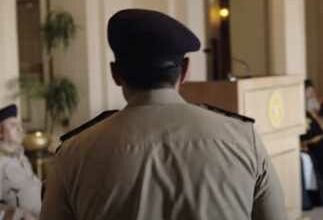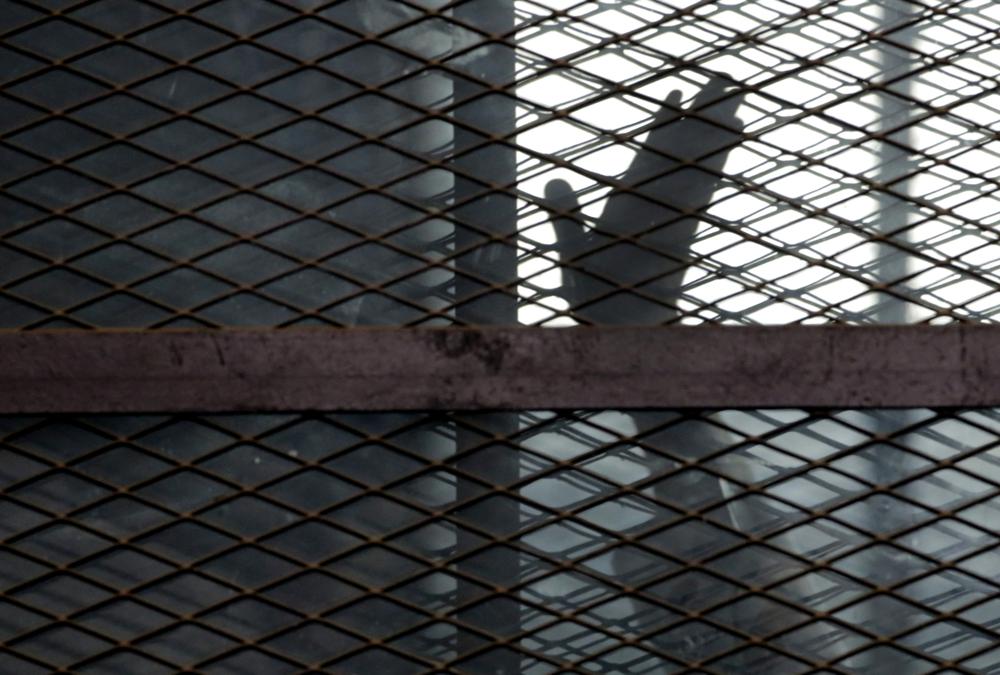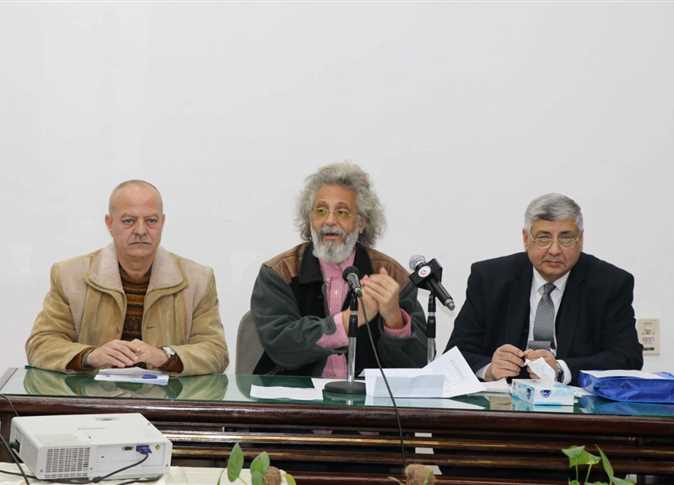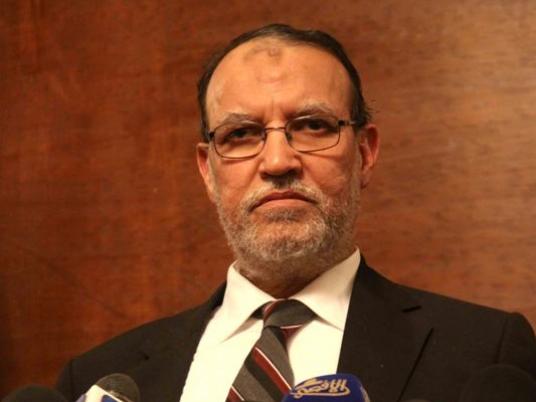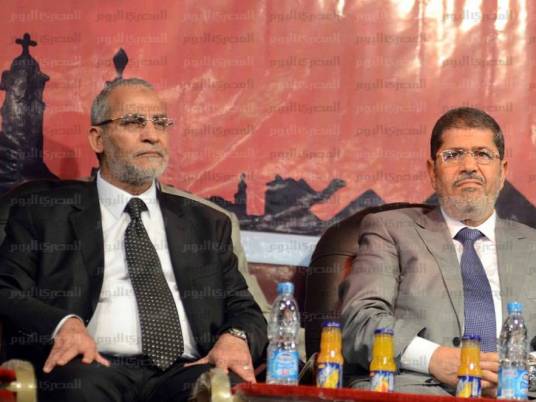
Investigation records have revealed that under the orders of the Prosecutor General, a prosecutor attempted to interrogate Morsy, who is in detention, as part of an ongoing investigation into last year's Ettehadiya violence. Morsy, however, refused to be interrogated.
The Ettehadiya clashes took place last December when anti-Morsy protestors held a sit-in near the presidential palace in protest of the Constitutional Declaration issued by Morsy which immunized his decisions from legal challenge. The protestors were attacked by members and supporters of the Muslim Brotherhood in an attempt to disperse the sit-in by force. The events left at least 9 people killed on both sides.
Morsy’s prosecutor wrote down in investigation records that he attempted 3 times over the course of 3 hours to question Morsy, but Morsy allegedly refused to answer.
“I have immunity as the legitimate president of the country,” Morsy said refusing to be interrogated. This led the prosecutor to ask him 20 questions based on his charges of issuing instructions to the security forces to disperse demonstrations by force and inciting his followers and Brotherhood members to use violence, firearms and bladed weapons to attack anti-Morsy protestors. Morsy refused to answer the questions and maintained silence according to the records.
Morsy also faces charges of inciting his supporters to commit murder and to abduct, detain and torture peaceful demonstrators. He was asked about his knowledge of the clashes taking place between his supporters and opponents after the constitutional declaration he issued, in addition to his knowledge of how both security forces and his supporters violently dealt with his opponents.
Fifteen other defendants face charges in this case, according to the investigations. Accusations included committing acts of violence and incitement to murder and thuggery.
The list of defendants who were referred to the Criminal Court, other than Morsy, include the following: deputy head of the Brotherhood's Freedom and Justice Party Essam al-Erian, former deputy head of the Presidency Bureau Asad al-Shaeikha, former head of the president's office Ahmed Abdel Aaty, former advisor to the president Ayman Abdel Rauf, and pro-Brotherhood preacher Wagdi Ghonim. Other noteworthy defendants include leading Brotherhood members and supporters Alaa Hamza, Abdel Rahman Ezz, Ahmed al-Moghir, Gamal Saber, and Mohamed al-Beltagy.
Investigations said that before Morsy supporters attacked his opponents, he repeatedly asked the the Republican Guards and the former interior minister to disperse the sit-in, but they refused. This led Sheikha, Abdel Aaty and Abdel Raouf to call their supporters and mobilize them. The supporters violently attacked the peaceful demonstrators, burned their tents and used live ammunition and bird shot leading to the death and injury of many, including reporter Husseini Abou Dief who died from a shot in the head.
The supporters also abducted 54 opponents by the the walls of the palace and brutally tortured them.
During the events, defendants al-Erian, Ghoniem and al-Beltagy publicly incited violence against anti-Morsy protestors through the media.
Prosecutor General Hesham Barakat ordered to continue detaining defendants pending investigation and the arrest of 8 other defendants who are on the run. The case was sent to the Cairo Court of Appeal to set a trial date.
The prosecution has excluded from the case the head of the Presidency Bureau Refaa al-Tahtawi, Muslim Brotherhood Supreme Guide Mohamed Badie, his deputy Khairat al-Shater and leading Brotherhood member Mahmoud Ghozlan. Judicial sources said they were excluded as they are facing charges in a separate case that will be announced soon.
Edited translation from Al-Masry Al-Youm

